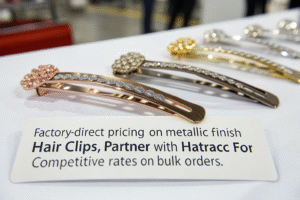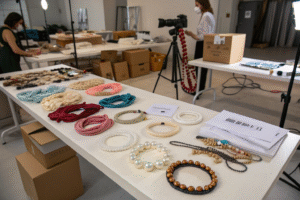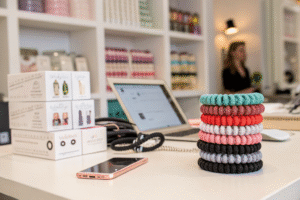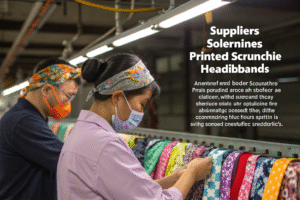Importers of hair accessories face growing challenges due to U.S. tariffs, especially on products sourced from China. Many businesses struggle with high duties, complex customs procedures, and the pressure to maintain competitive prices. Without a smart strategy, profit margins can shrink quickly.
The best way to manage tariffs on hair accessories is to use customs bonds strategically—through bonded warehouses, Foreign Trade Zones (FTZs), and duty drawback programs—to defer, reduce, or even avoid tariff costs legally.
This article explains in detail the customs bond options available, how they work, and what importers of hair accessories should consider when choosing the right solution.
What Is a Customs Bond in Hair Accessory Imports?
Importing hair accessories like headbands, claw clips, or silk scarves into the U.S. requires compliance with Customs and Border Protection (CBP). Many buyers ask how they can simplify this process and manage tariff exposure.
A customs bond is a financial guarantee required by CBP to ensure importers pay duties, taxes, and fees, while complying with all regulations. For hair accessory businesses, bonds can also be used strategically to manage tariffs and logistics.
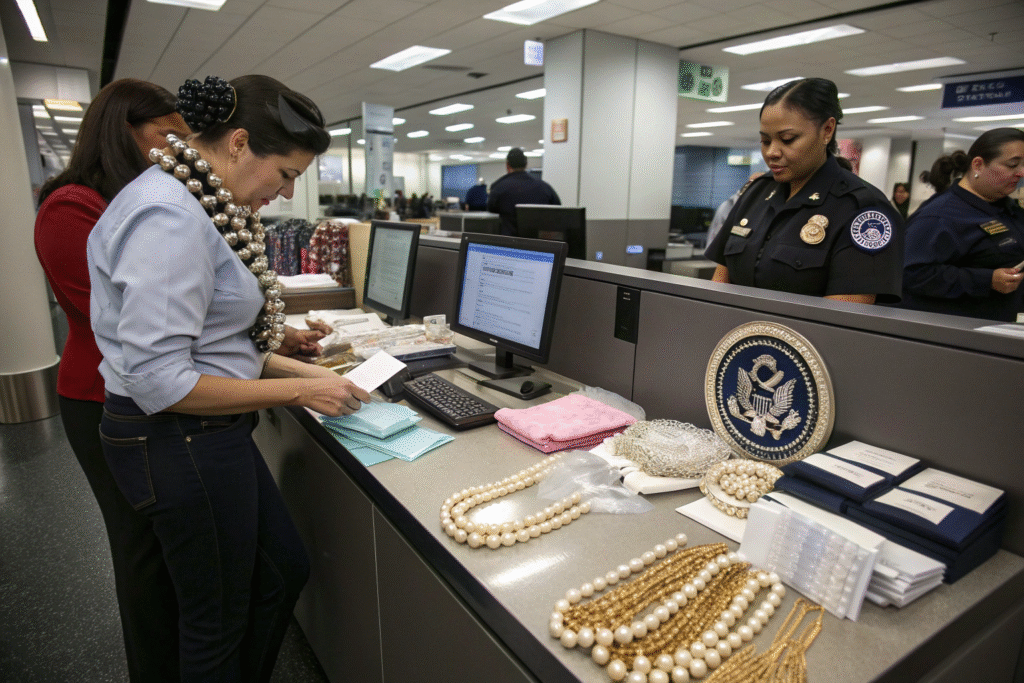
Customs bonds come in different types depending on import frequency and purpose. Choosing the right one can directly affect your costs and efficiency. For companies importing large volumes of fashion accessories every season, continuous bonds are more practical. For smaller or occasional shipments, single-entry bonds may be enough.
How Does a Single-Entry Bond Work?
A single-entry bond covers only one shipment. This is useful when an importer brings in a limited order of accessories, such as pearl hairpins or velvet scrunchies for a seasonal launch.
Importers must calculate the bond amount based on the shipment’s value plus duties and fees. For example, if a shipment is valued at $50,000 and tariffs are 25%, the bond may need to cover $62,500.
For more information, you can check guides from Cole International and ExamineChina.
Why Choose a Continuous Bond?
Continuous bonds cover all shipments within a year, making them ideal for wholesalers importing large volumes of fashion hair accessories monthly. This saves both time and administrative hassle since you don’t need a new bond for every container.
CBP often requires continuous bonds for businesses that import over four times annually. Reliable explanations can be found on Investopedia and Customs Broker USA.
Can Bonded Warehouses Reduce Tariff Costs?
Many importers ask if bonded warehouses can help reduce tariffs on hair accessories. The short answer is yes—when used correctly.
Bonded warehouses allow importers to store imported accessories without paying tariffs until the goods are released for U.S. consumption. If the items are re-exported, tariffs can be avoided entirely.
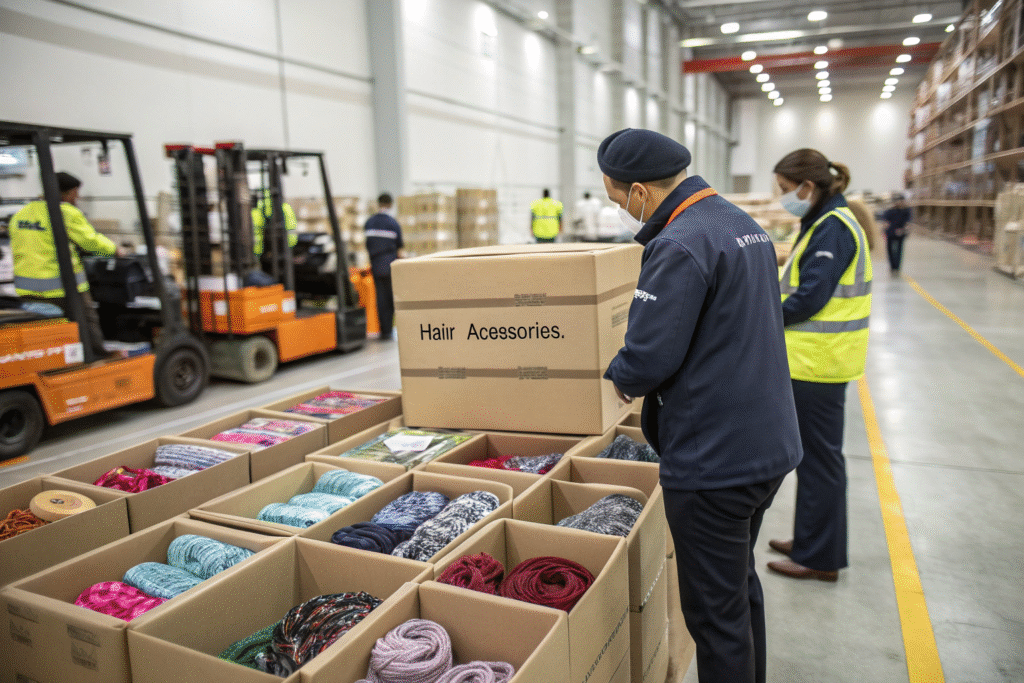
This system is particularly useful for importers who sell globally. For example, if you import claw clips into the U.S. but later sell them to Canada, you can store them in a bonded warehouse and avoid U.S. tariffs.
How Do Bonded Warehouses Work for Accessories?
Bonded warehouses operate under strict CBP supervision. Goods like silk scarves and bow hair clips can remain inside for up to five years without duties. Duties are only paid once products enter U.S. commerce.
This provides flexibility in market planning. Importers can test sales in different regions before committing to tariff payments. More detailed strategies can be found on EezyImport and Customs & International Trade Law.
What Are the Benefits for Export-Oriented Sellers?
If you plan to re-export accessories, bonded warehouses eliminate U.S. tariffs entirely. For instance, many companies ship tiaras and veils to wedding boutiques in Europe from bonded facilities in New York.
This strategy lowers risk and improves cash flow. For a full overview, visit YQN Resources or USA Customs Clearance.
What Role Do Foreign Trade Zones Play?
Foreign Trade Zones (FTZs) are another advanced option for importers facing tariffs on accessories. FTZs are considered outside U.S. customs territory until goods enter the domestic market.
FTZs allow importers to defer tariffs, re-export without paying duties, or even change the duty rate if finished goods fall under a lower category.
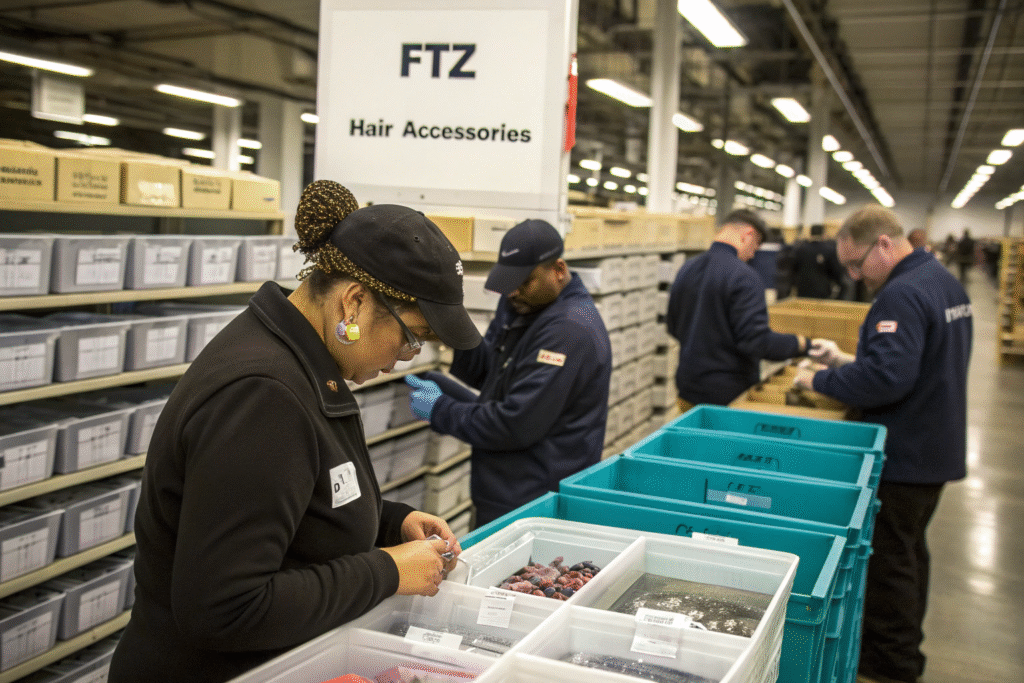
For companies importing large orders of elastic headbands or hair chains, FTZs provide flexibility to manage costs and respond to changing demand.
How Do FTZs Help Hair Accessory Importers?
Goods imported into an FTZ can be stored, assembled, or processed without paying duties upfront. If accessories are re-exported, no U.S. tariffs are applied.
Importers can also benefit if the finished product has a lower duty rate. For example, importing fabric rolls and assembling them into headscarves inside an FTZ may reduce tariff costs.
Learn more at Customs & International Trade Law and EezyImport.
Are FTZs Practical for Small Businesses?
FTZs are usually more suitable for medium-to-large companies. Setup requires investment, compliance systems, and an FTZ operator bond. However, for businesses shipping large seasonal collections of trendy headwear, FTZs can significantly cut tariff expenses.
Case studies and practical guidance are available from Roanoke Insurance Group and U.S. Customs Clearance.
How Does the Duty Drawback Program Work?
The U.S. duty drawback program provides refunds of up to 99% of tariffs paid on imported goods that are later exported.
For hair accessory importers who export part of their inventory to international markets, this program is a key way to recover costs.
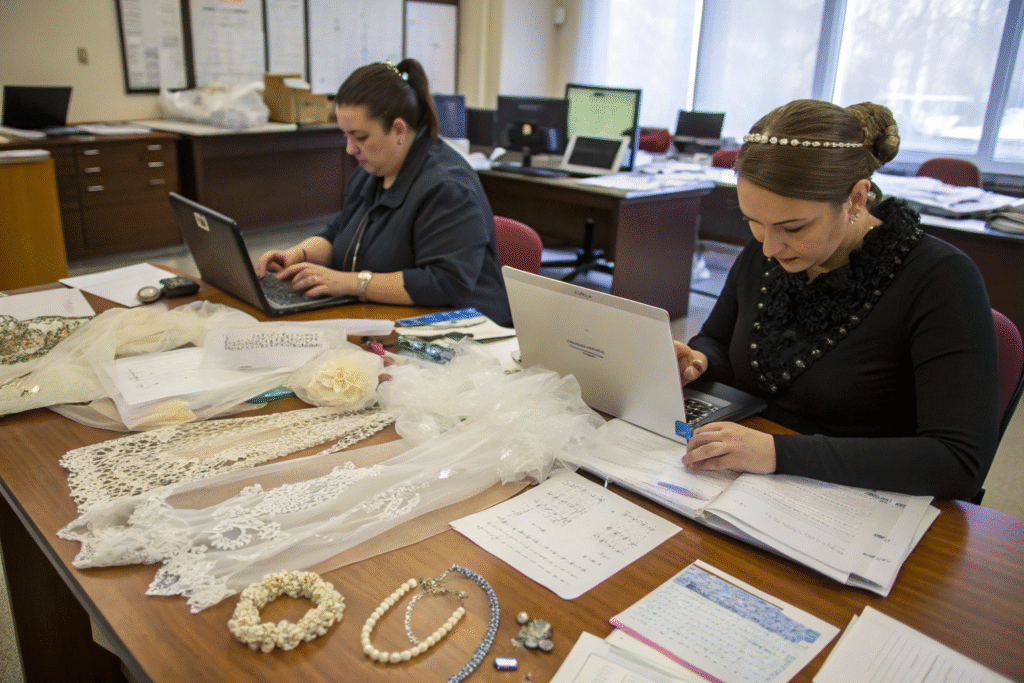
With a drawback bond in place, businesses can claim refunds for goods such as lace veils or sweatbands shipped abroad after importation.
How Can Importers Claim Duty Drawbacks?
To qualify, importers must maintain detailed records showing the link between imported and exported products. For example, if you import bobby pins and then sell them to European distributors, you can claim almost all duties back.
The process requires strict documentation, but reliable customs brokers can manage it. Guides are available on USA Customs Clearance and Roanoke Insurance Group.
What Are the Risks and Rewards?
The main challenge is administrative complexity. Poor recordkeeping can delay or deny refunds. However, for exporters handling thousands of scrunchie headbands annually, drawbacks can save hundreds of thousands of dollars.
For strategies and examples, consult Customs & International Trade Law and ExamineChina.
Conclusion
Customs bonds do not cancel tariffs, but they unlock powerful tools for importers of hair accessories. Single-entry and continuous bonds ensure compliance, bonded warehouses and FTZs defer or eliminate duties, and drawback programs allow refunds for exports. For companies facing high tariffs, these strategies provide real savings and flexibility.
If you are considering scaling your accessory imports, Shanghai Fumao can help. We offer large-scale manufacturing, customized packaging, and support for international logistics. Contact our Business Director Elaine at elaine@fumaoclothing.com to start your next hair accessory production order with a trusted partner.


